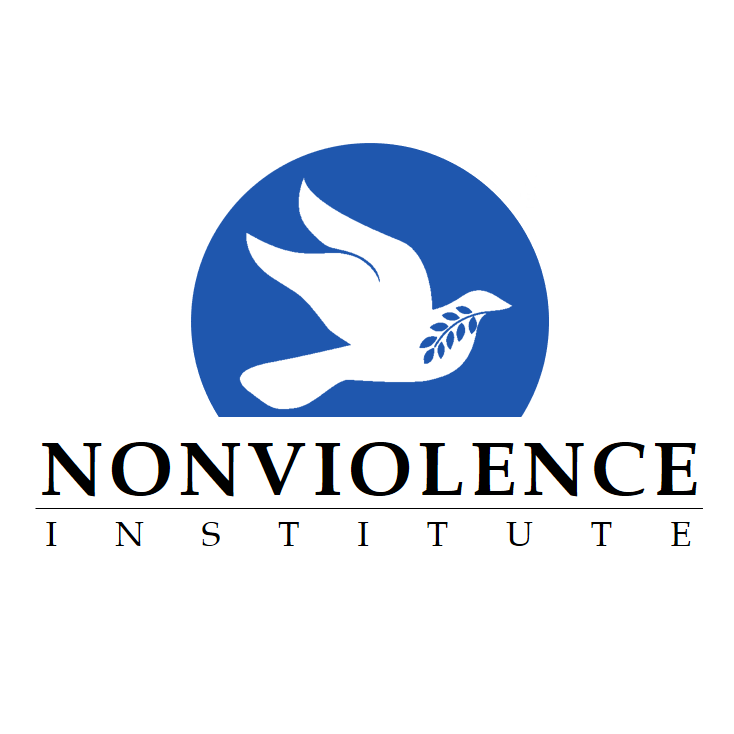
Since the death of George Floyd, protests and violence has erupted in waves across our country. On June 1 in Providence, we witnessed vandalism and looting, while in Minneapolis, NY, LA, Philadelphia and other cities, the burning, rioting and clashes between protesters and police rose to a frenzied pitch unabated. Under this cloud of tension and fear, it was a proud night on June 5 when the people of RI come back nearly 10,000 strong to march through those same streets carrying a message far more powerful: They were not there to destroy. They were there to give recognition and dignity to those who died, and to make this just cause be heard. Small conflicts that threatened to flare up were contained and diffused. The successful and peaceful protest was a victory for those who believe that nonviolence can change the world.
For nearly two decades, the Nonviolence Institute (NVI) in Providence has been a force for sustainable peace. Their mission: “to teach, by word and example, the principles and practices of nonviolence, and to foster a community that addresses potentially violent situations with nonviolent solutions.” I asked Sal Montiero, senior nonviolence facilitator at NVI, if the Institute had been a presence at the protest on June 5. “Of course, that’s our job,” he told me. The street workers at the Institute knew that the kids they work with would be at the rally. The NVI was there for support, making their presence highly visible as always, wearing the NVI logo ID.
The NVI helps the community it serves by addressing the real needs, in real time, of the people who live there. When gun violence brings death and anguish to families, the NVI is there to confront violence with nonviolence. The support that they give to victim’s families helps to stem the viral spread of anger and pain. When the COVID-19 lockdown brought economic hardship, increased tension and shortages to the neighborhoods, the NVI website carried a list of resources for every need, from medical supplies to green socks. NVI street workers put their own lives at risk to bring services to people’s homes, pass out masks and gloves, and keep a watchful eye and peaceful presence as restrictions and tension rose. Montiero explained that the NVI’s service to the community involves both fixing problems in the moment – intervening in crisis situations – and working with youth and members of the community to introduce nonviolence as a better alternative to gang violence. Martin Luther King’s Blessed Community is a driving motivation behind many practices and training offered at the Institute.
I asked Sal if they’d seen domestic abuse rise along with street unrest. “Domestic violence, drug and alcohol abuse, suicide, they’ve all increased,” he told me. “The COVID-19 crisis increased every factor that was already in place.” Right now, NVI has five street workers in Providence and two in Pawtucket, engaging with the people on the streets and in the neighborhoods. They hear what is going on, and see what the issues are. It’s an effective way to gauge the pulse of the community. And when help gets to where it’s needed, when it is needed, outcomes can change.
I asked Montiero what he thought about the looting and rioting that was going on across the country. He doesn’t condone it, but he understands what is behind it. “Imagine that for your entire life, the whole system is against you. Opportunities are denied you, police target you, and you are bullied nearly everywhere you go. After years, when one peaceful protest after another brings no change…”
Montiero believes that education is ultimately the key to change. He has been studying and practicing the principles of nonviolence in his own life for more than 25 years and has facilitated nonviolence trainings all over the globe; he’s currently teaching at Providence College and Moses Brown School in Providence. “Telling kids the what and why of what is happening today is crucial for the type of understanding that can make a real difference for the future. We all need to examine ourselves and ask, ‘What is it I do to be part of the problem?’ Kids need to look at the brutality and racism and say, ‘It’s not OK.’”
For those who ask why the protests over George Floyd’s death are still continuing, the answer is this: Those who demand justice cannot stop until something in DONE.
For more on the history and mission of the Nonviolence Institute, visit nonviolenceinstitute.org


